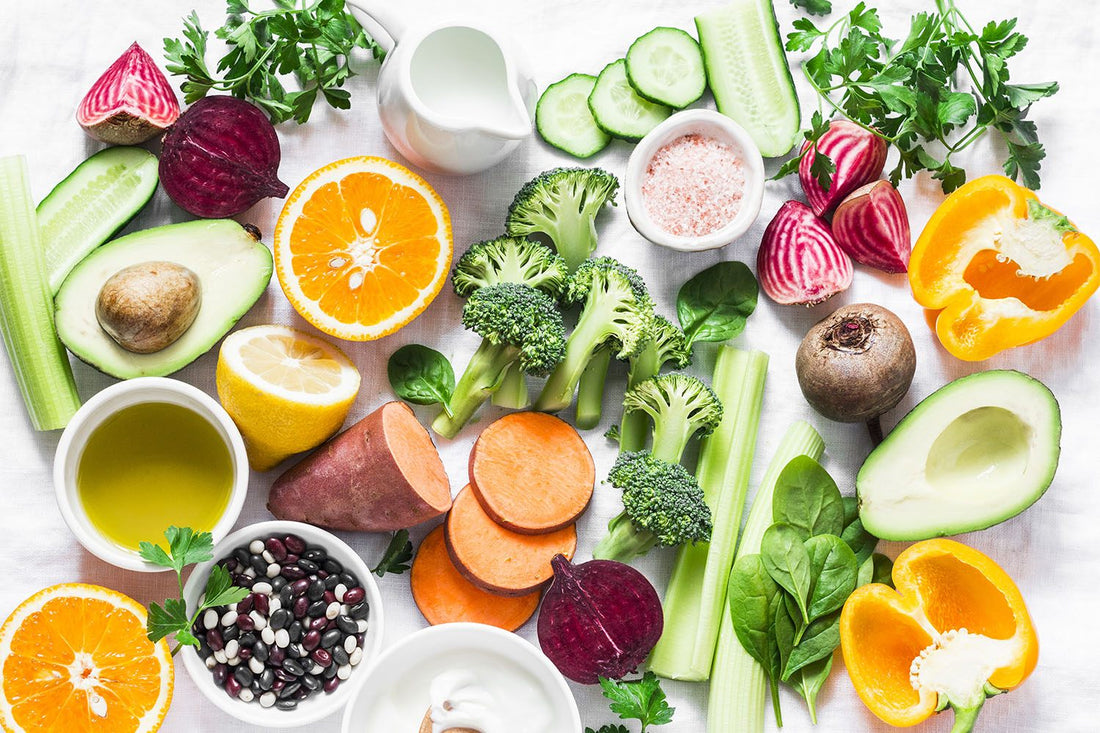
The importance of B vitamins
Share
This group of 8 essential nutrients works together but has uniquely different roles in keeping our bodies healthy.
Together they help our cells function properly, create new blood cells, keep our skin and tissues healthy as well as being the building blocks for a healthy metabolism and preventative care.
The 8 types of B vitamins
- Thiamin (Vitamin B1) helps to convert nutrients into energy.
- Riboflavin (Vitamin B2) helps metabolise food into energy it can also support in increasing energy levels and boosting the immune system.
- Niacin (Vitamin B3) helps DNA production and repair.
- Pantothenic acid (Vitamin B5) is required for the growth and production of hormones.
- Vitamin B6 is involved in over 100 enzyme reactions in the body, research also shows that this may be beneficial in the reduction of heart disease.
- Biotin (Vitamin B7) contributes to cell communication, DNA regulation and food metabolisation.
- Folate (Vitamin B9) is importance for cell growth and proper cell division.
- Vitamin B12 is vital for neurological function and maintaining healthy nerve function.
Foods high in B vitamins
B vitamins occur naturally in many foods and although most cannot be stored for long many people can get enough of what they need through their food.
- Salmon
- Leafy green vegetables
- Eggs
- Milk
- Legumes.
Certain segments of the population are more at risk of vitamin B deficiencies. For example older adults, pregnant women, vegans and people with Crohn's disease, celiac disease and HIV. Symptoms of a deficiency depend on which B vitamin you are deficient in for example tiredness, confusion, depression and anaemia.
To help you ensure that you get your quota of B vitamins consider adding the following into your diet:
- Milk and cheese
- Eggs
- Citrus fruits
- Meat, such as chicken and red meat
- Oily fish, such as tuna, mackerel, and salmon
- Shellfish, including oysters and clams
- Dark green vegetables, such as spinach and kale
- Vegetables such as beets, avocados, and potatoes
- Whole grains and cereals
- Beans, such as kidney beans, black beans, and chickpeas
- Nuts and seeds
- Fruits, such as citrus, banana, and watermelon.
Alternatively, you could simply open one of our superfood juice sachets and add it to your juice or favourite smoothie.
For example:
- Our organic Wheatgrass juice contains 95.7% of the RDA for vitamin B per 100ml and 1600% of vitamin B12.
- Our organic Blended Green juice contains 76.7% RDA Vitamin B5 and 1280% Vitamin B12.
- Our organic Beetroot and Maqui juice has 27% RDA of vitamin B9 (folate).
- Our organic Kale Reishi & Maca juice has 200% RDA Vitamin B.
To order your vitamin B boosting juices visit our shop today.

